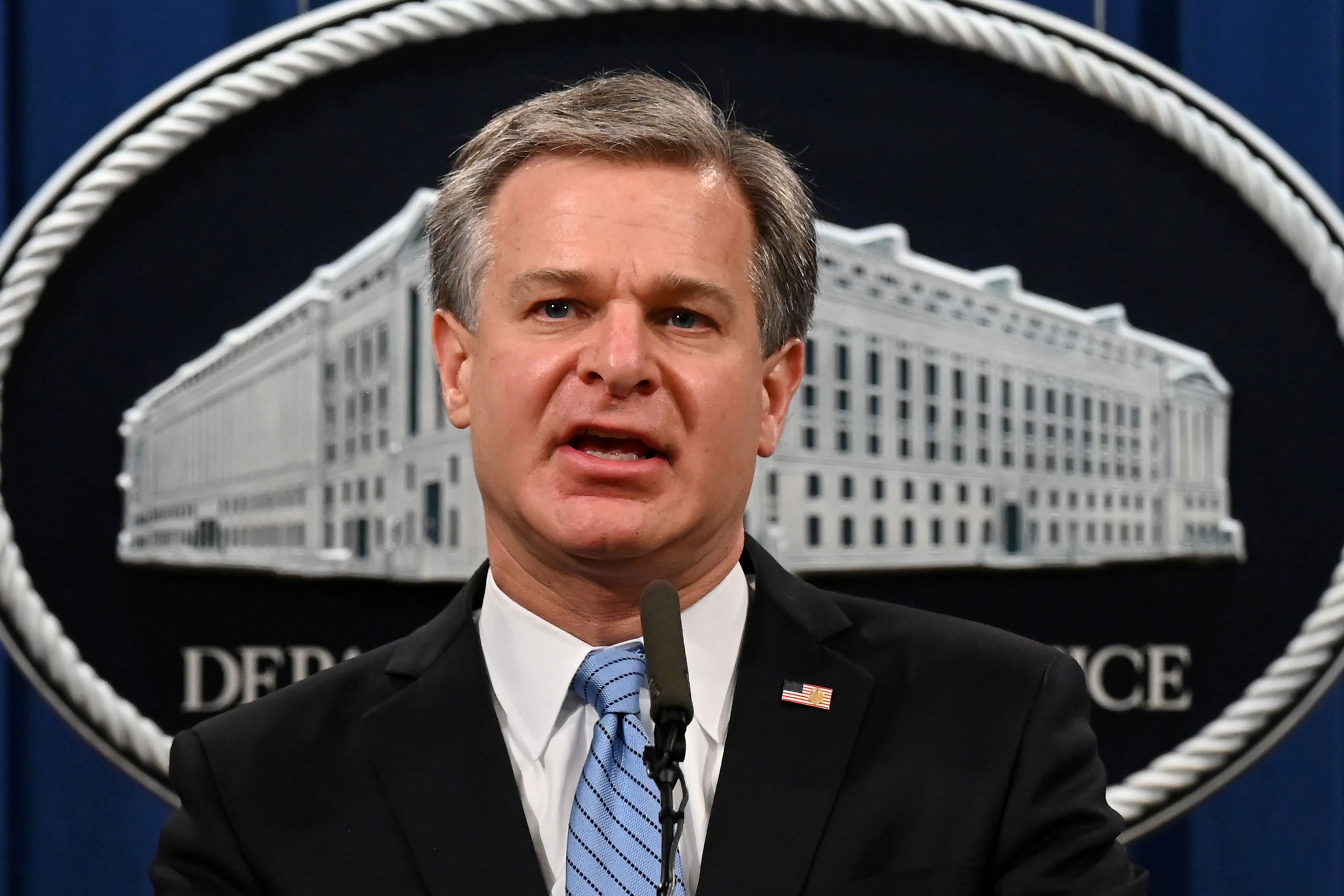
Iran and Russia have both obtained information about American voter registrations and are trying to influence the public about the upcoming U.S. presidential election, national security officials said Wednesday night.
“Iran and Russia have taken specific actions to influence public opinion related to our elections,” said Director of National Intelligence John Ratcliffe at a hastily scheduled press conference.
“First we have confirmed that some voter registration information has been obtained by Iran and separately by Russia,” Ratcliffe said at the briefing, which comes less than two weeks before Election Day.
“This data can be used by foreign actors to attempt to communicate false information to registered voters that they hope will cause confusion, sow chaos and undermine your confidence in American democracy.”
Specifically, Ratcliffe said, Iran has been sending “spoofed emails designed to intimidate voters, incite social unrest and damage President” Donald Trump, who is facing former Vice President Joe Biden, the Democratic nominee, in the election.
“Additionally Iran is distributing other content to include a video that implies that individuals could cast fraudulent ballots even from overseas,” he said.
“This video and any claims about such allegedly fraudulent ballots are not true,” Ratcliffe said.
He added that “these actions are desperate attempts by desperate adversaries. Even if the adversaries pursue further attempts to intimidate or attempt to undermine voter confidence, know that our election systems are resilient and you can be confident that your votes are secure.
“Although we have not seen the same actions from Russia, we are aware that they have obtained some voter information just as they did in 2016,” Ratcliffe said.
Minutes before the press conference, The Washington Post reported that U.S. officials had warned state and local authorities that Iran had conducted a deceptive campaign to send threatening emails to Democratic voters while posing as members of the far-right group the Proud Boys.
A Homeland Security official also told the state and local election administrators on a call Wednesday that holes had been detected in their election websites, the Post reported.
The emails appeared to target Democrats using information from digital voter databases, according to the Post, which cited two U.S. officials.
The messages threatened recipients, some of whom were in swing states, to “vote for Trump on Election Day or we will come after you,” the Post reported.
FBI Director Christopher Wray, who spoke after Ratcliffe at the press conference, said, “We are not going to tolerate foreign interference in our elections or any criminal activity that threatens the sanctity of your vote or undermines public confidence in the outcome of the election.”
“You should be confident that your vote counts,” Wray said. “Early, unverified claims to the contrary should be viewed with a healthy dose of skepticism.”
A White House official said that the White House was briefed on the findings by the FBI and Ratcliffe’s office.
“Since the beginning of the administration, President Trump has directed law enforcement, defense and intel agencies to monitor and thwart any attempts to interfere in our election,” the official said. “This shows the efforts of our great law enforcement are working.”
However, Trump, who is trailing Biden in national polls, has aggressively criticized state leaders’ efforts to expand mail-in ballot access in order to offer a safe way to vote during the coronavirus pandemic.
The president has claimed, without providing evidence, that such plans will lead to massive levels of voter fraud and his campaign has filed lawsuits to block some of the new mail-in voting rules.
Before the press conference, the leaders of the Senate Select Committee on Intelligence issued a joint statement about “threats from adversaries to U.S. election systems and infrastructure.”
Acting committee Chairman Marco Rubio, R-Fla., and the Vice Chairman Mark Warner, D-Va., said they “urge every American – including members of the media – to be cautious about believing or spreading unverified, sensational claims related to votes and voting.”




